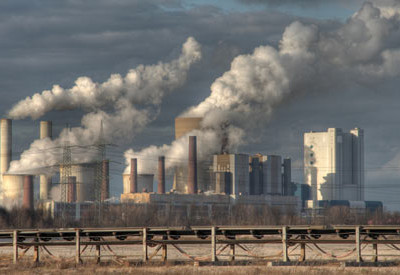Judicial Activism and Climate Change: An Unhealthy Combination
The trial judge in the Juliana case won’t give up, no matter what higher courts say..
An Oregon federal judge has convinced herself that climate change is a constitutional issue. After what promises to be a lengthy trial, Judge Aiken plans to decide whether U.S. energy policy passes constitutional muster. While I have no doubts about her sincerity and good intentions, her opinion itself shows why her courtroom is not the right place for climate policy to be made.
It’s true that climate change, if left unchecked, will pose dire risks. But that does not make it a constitutional issue.
There are issues of transcendent importance that constitutional law does not address. It’s hard to imagine anything worse than nuclear war. So shouldn’t a federal judge step in to declare nuclear war unconstitutional? The answer is no. There just wouldn’t be any basis in American law for such a ruling. And it is hard to see how a federal judge could contribute usefully to steering the world away from the risks of nuclear war.
The same is true for the issue of climate change. Readers of this blog know how seriously I take the climate issue. As important as climate change is, it is not a subject to which constitutional law speaks and is not a problem where policy should be steered by judges.
In a previous round of the lawsuit, the Ninth Circuit told her to dismiss the case because she lacked the power to require creation of a federal plan to prevent climate change. To get around that ruling, she now says she could simply declare that the government has violated the right to a livable climate. That is seemingly less of an intrusion into the policy realm.
But her opinion shows that this is simply window-dressing. After finding a constitutional violation, she says, she would then turn to a remedy phase “with a more innovative judicial role to supervise the parties in crafting a plan.” Forcing the government to “craft a plan” is precisely what the Ninth Circuit said was out of bounds.
Judge Aiken also writes approvingly of a process by which the future of climate policy would emerge from backroom negotiations between the lawyers in the case, ultimately forming a consent decree. That is no way to decide an issue of such societal importance.
It seems clear to me that, with the best of intentions, the judge has overstepped any reasonable understanding of her role. This is no time to jettison the limits on judicial power — not in an era when the rule of law and of democracy themselves are in such peril.
Reader Comments
4 Replies to “Judicial Activism and Climate Change: An Unhealthy Combination”
Comments are closed.







The only effect the constitution has on Climate change is the current Supream Court decisions giving Corporations Constitutional Rights. They have used theses “Rights” to get favorable rulings against the rights and protections of people and the environment in favor of their rights ( to make money, not to speak…etc)
The remedy for this is the “We the People Amendment “ #movetoamend.org
I agree with Ms Shumway.
Moreover, natural rights and similar are protected rights, and actions taken by the U.S. federal government, notably Congress and Executive, are depriving citizens of these rights by not properly regulating sale and use of fossil fuels.
For legal details study “the Nature’s Trust doctrine” in a book of similar title by Mary Christina Wood.
The claim is that federal environmental agencies have been ‘captured’ by the companies and industries they are supposed to regulate. Hence, filing suit against the federal government is the (only) remaining option. That land it squarely in the courts and ultimately in the hands of the U.S. Supreme Court. Environmental regulations do not have at present a means of acknowledging damages to future generations which climate harm entails. By signing international treaties the U.S. has effectively modified the Constitution so these are realistic legal concerns.
I disagree with the part about capture, which I think is deeply unfair to people at EPA who have spent their lives trying to protect the environment. And the capture story also fails to explain why the fossil fuel industry and their GOP friends hate EPA so much.
The problem with the other part of the argument is that so much of what government does is to protect our rights to be free from attacks (Defense Department and police), from other people giving us diseases (CDC), from injury by others (traffic laws, housing codes, product safety regulation, drug regulation). Should federal judges take over all those parts of government too?
And finally, if you are counting on the conservative supermajority on the Supreme Court to protect us from climate change, you’re awfully optimistic.
Climate change as important policy has been disregarded by administrations and Congress since 1965 when LBJ and his administration was briefed. The exception has been participation in the IPCC, (see https://www.state.gov/the-united-states-officially-rejoins-the-paris-agreement/#:~:text=On%20January%2020%2C%20on%20his,back%20into%20the%20Paris%20Agreement) but that is subject constitutional Supremacy Clause considerations (see https://www.google.com/search?q=how+are+international+ratified+treaties+considered+by+u.s.+constitution&rlz=1CAPJQC_enUS1091&oq=how+are+international+ratified+treaties+considered+by+u.s.+constitution&gs_lcrp=EgZjaHJvbWUyBggAEEUYOdIBCTU2Njc4ajFqN6gCALACAA&sourceid=chrome&ie=UTF-8) implementation differently by many states (see https://www.ncbi.nlm.nih.gov/pmc/articles/PMC8853238/). Whether “And finally, if you are counting on the conservative supermajority on the Supreme Court to protect us from climate change, you’re awfully optimistic” is relevant or not really doesn’t matter. SCOTUS is not a congress. The downsides of failing to contain climate change are physical, medical, and ultimately economic. Pursuing a legal case is, as Wood suggests, consistent with a long legal tradition. Because Congress has failed to act, it’s the only choice left according to U.S. governance. The apparatus to change things will be in place when JULIANA is affirmed. What matters is how much economic damage will need to be undone. Congress has ignored the potential harm to climate for decades. The proof of harm will eventually be obvious, but by that time it may not be reversible for many generations.